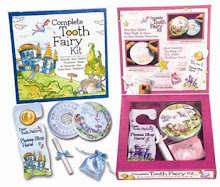 Cherries
CherriesEven locally grown cherries are not safe. In fact, cherries grown in the U.S. were found to have three times more pesticide residue then imported cherries.
Can't find organic? Safer alternatives include blueberries, raspberries and cranberries.
 Kale
KaleTraditionally kale is known as a hardier vegetable that rarely suffers from pests and disease, but it was found to have high amounts of pesticide residue when tested this year.
Can't find organic? Safer alternatives include cabbage, asparagus and broccoli.
 Leafy Greens
Leafy GreensLeafy greens are frequently contaminated with what are considered the most potent pesticides used on food.
Can't find organic? Safer alternatives include cabbage, cauliflower and Brussels sprouts.
 Grapes
GrapesImported grapes run a much greater risk of contamination than those grown domestically. Vineyards can be sprayed with different pesticides during different growth periods of the grape, and no amount of washing or peeling will eliminate contamination because of the grape's thin skin.
Can't find organic? Safer alternatives include blueberries, kiwi and raspberries.
 Carrots
CarrotsIn Europe pesticides commonly used on carrots, parsnips and onions will be banned within the next decade. The U.S. has yet to catch up with its European counterparts, so organic is the way to go with carrots.
Can't find organic? At least be sure to scrub and peel them. Safer carrot alternatives include sweet corn, sweet peas and broccoli.
http://www.thedailygreen.com/cm/thedailygreen/images/rT/carrots-p2f-lg.jpg
As insects become more resilient to the pesticides used on pears, more and more chemicals are used. The safest bet is to go organic. Can't find organic? Safer alternatives include grapefruit, honeydew mellon and mangos.

Pears
As insects become more resilient to the pesticides used on pears, more and more chemicals are used. The safest bet is to go organic.
Can't find organic? Safer alternatives include grapefruit, honeydew mellon and mangos.
 Potatoes
PotatoesAmerica's popular spud appeared on the previous dirty dozen list, although it has slipped off the most current version. However, EWG analyst Chris Campbell points out that potatoes are now "just off the list," so you should still try to buy organic when possible. Potatoes also get the double whammy of fungicides added to the soil for growing.
Can't find organic? Safer alternatives include eggplant, cabbage and earthy mushrooms.
 Tomatoes
TomatoesIn a change that surprises some, tomatoes have moved from the previous dirty dozen list to the EWG's most recent "clean" list of safest conventional produce. According to Chris Campbell, the researchers aren't sure exactly why this is the case. "It could be any number of reasons," Campbell told TDG. "It could be increasing awareness, better washing, substitution with better pesticides, changes in weather patterns or something else." It's still true that the thin skin of tomatoes can allow pesticides to enter the fruit, so it's always a good idea to buy organic when possible, even if the popular food is no longer among the worst actors. Can't find organic? You may want to consider peas, broccoli and asparagus.
Read more: http://www.thedailygreen.com/healthy-eating/eat-safe/Dirty-Dozen-Foods#ixzz0MoOftxTu








1.jpg)









No comments:
Post a Comment